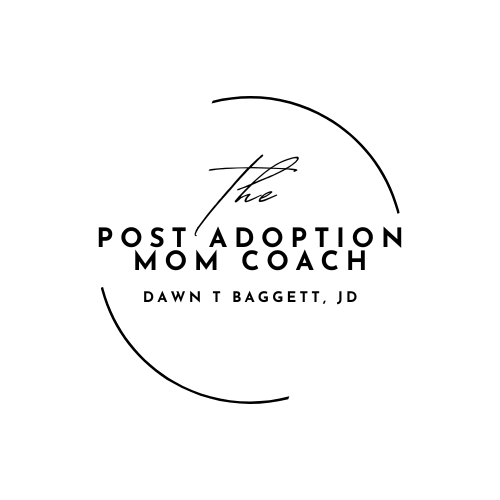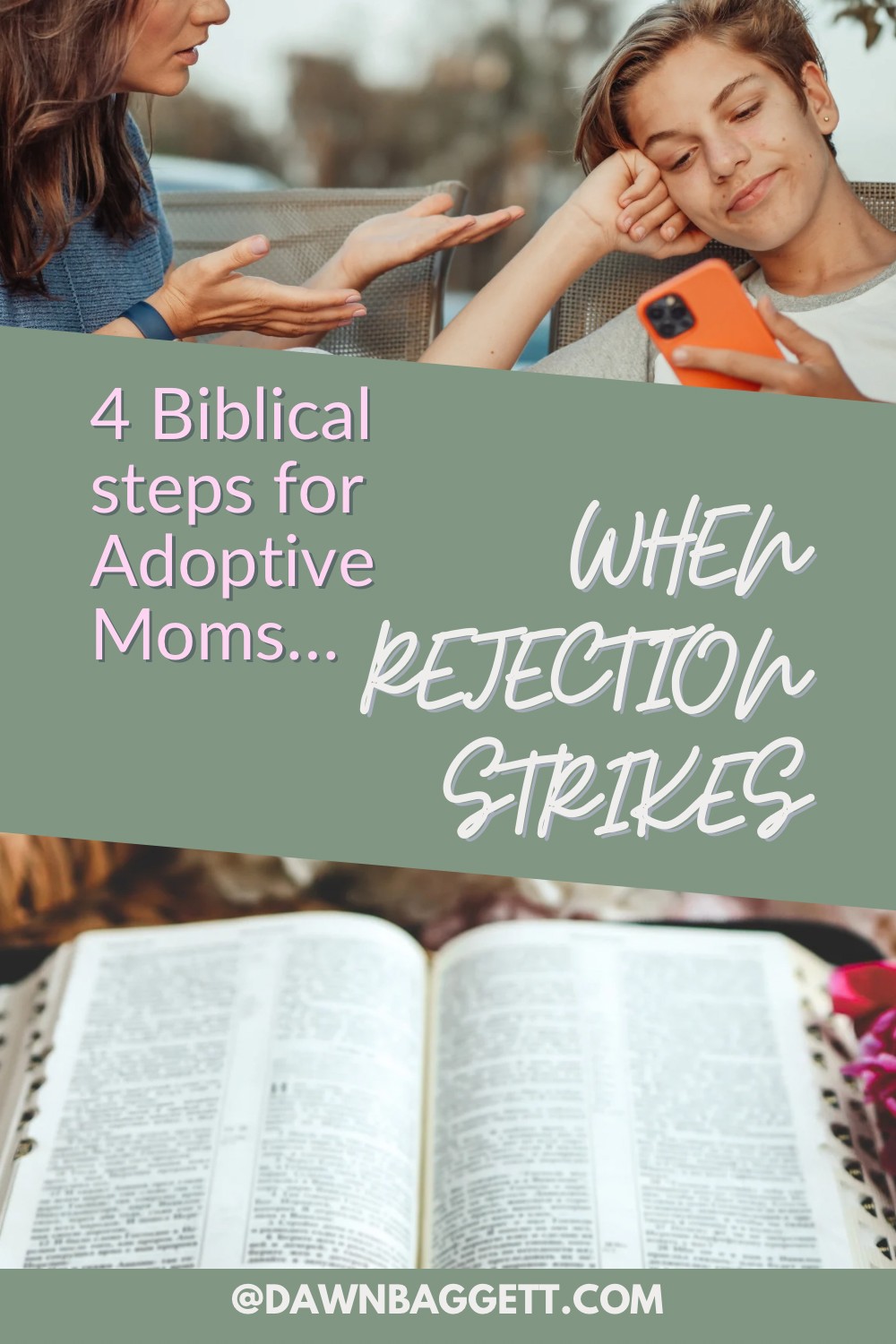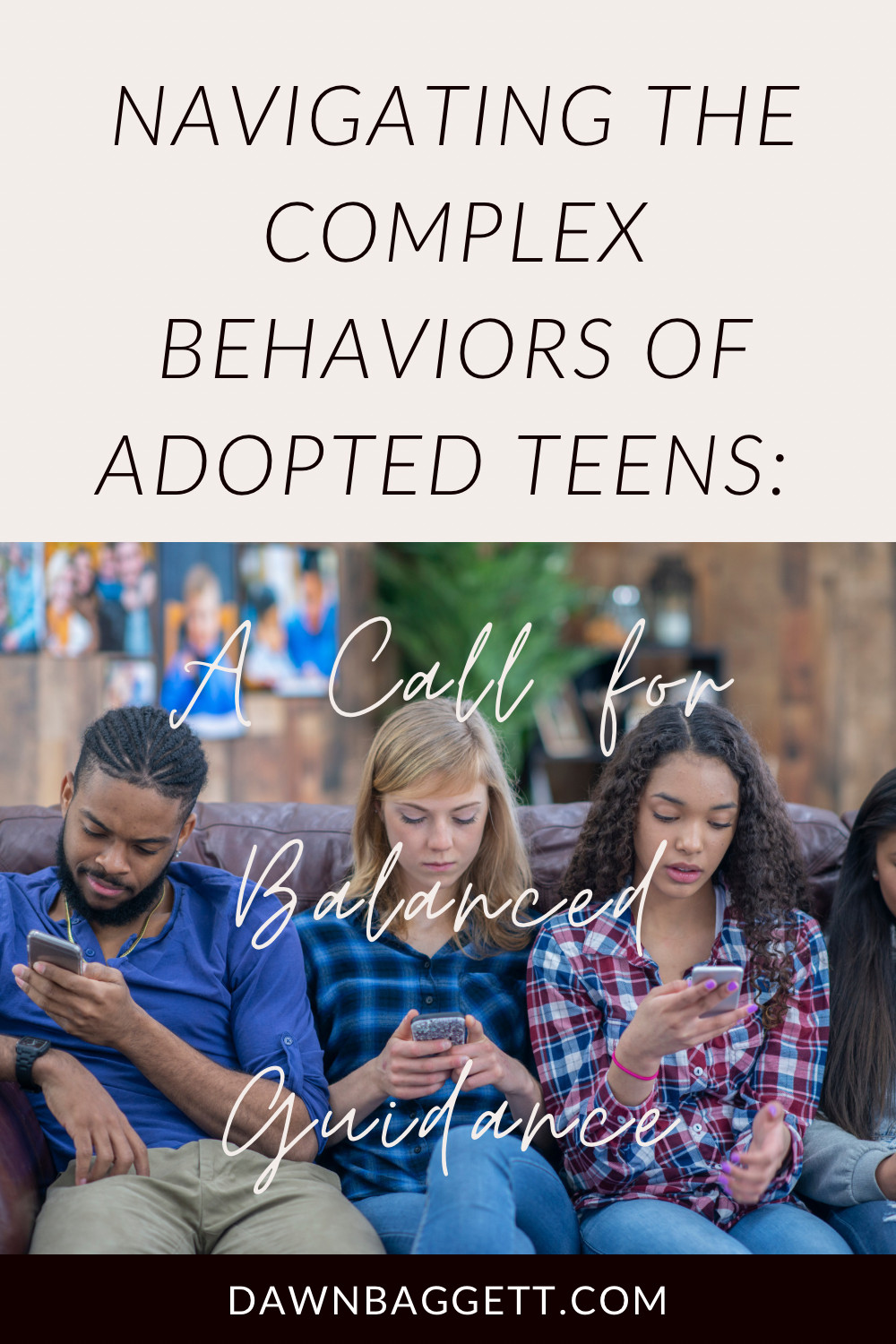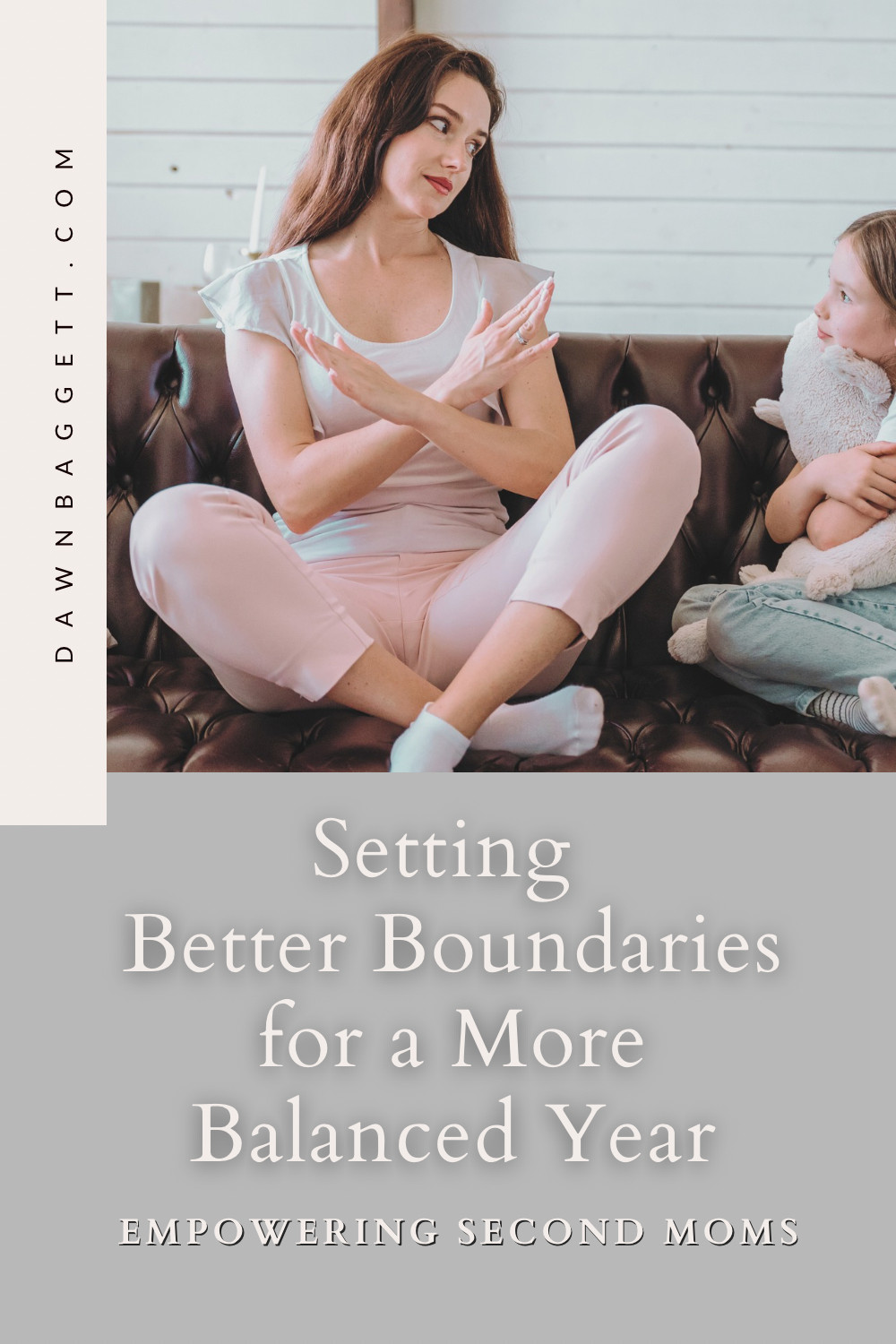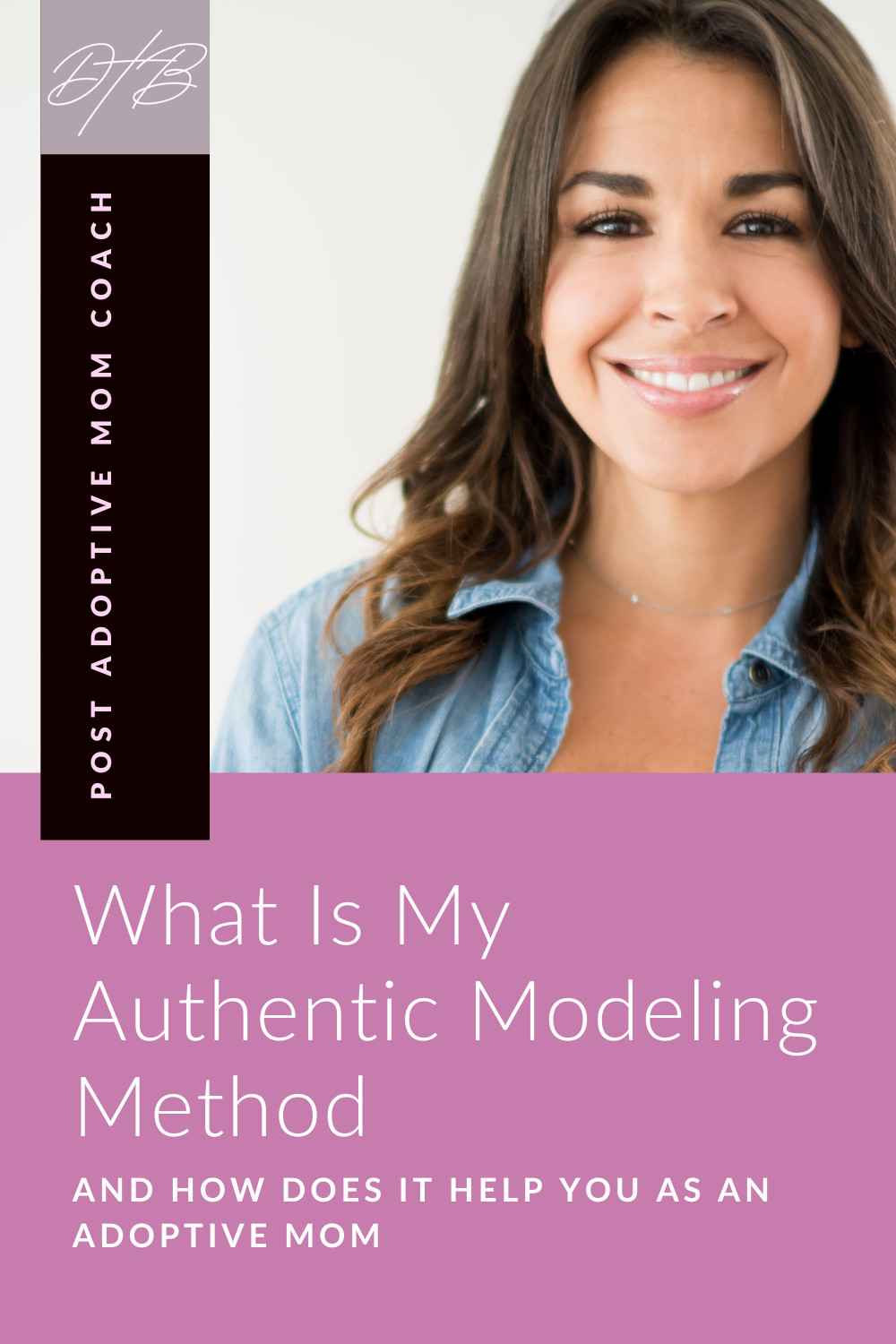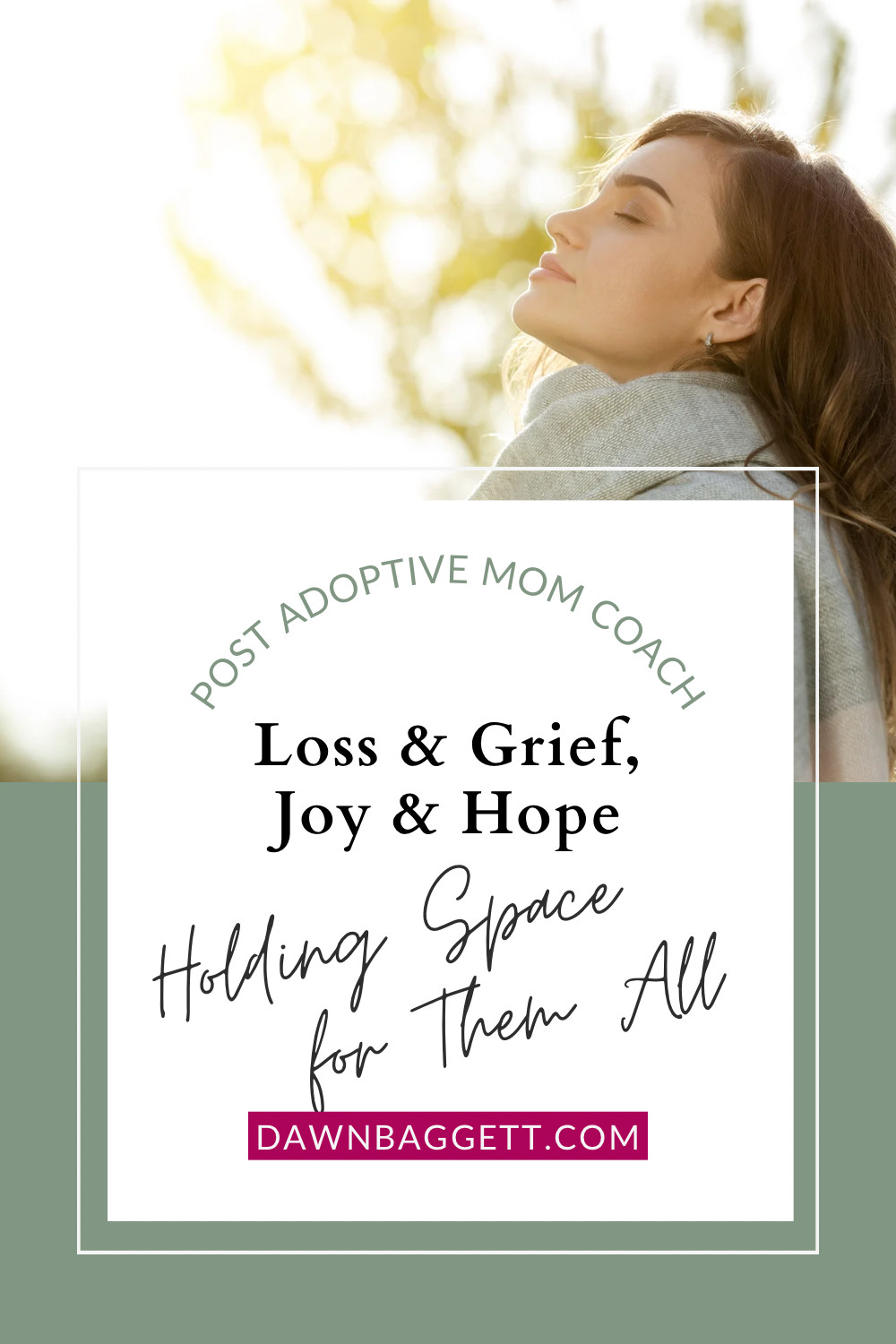Wouldn’t you agree that parenting is sometimes hard work?
How about when the dynamics of family life change with the addition of adopted children or stepchildren?
In my experience as an adoptive mom, it can be difficult to navigate through conflicting advice, unreasonable expectations, and ever-evolving relationships in a bustling household.
Roles and responsibilities that aren’t clearly defined can make for increased conflicts - ask me how I know. I’ve learned that when we learn to better manage expectations (ours first, then those of others) while also allowing ourselves grace to do our best within these changing circumstances, we can steer our way through with much less distress.
Roles and Responsibilities
One big key to managing expectations is determining our roles and responsibilities as parents. We are each unique as individuals, with different backgrounds, and in the way we parent. With the addition of new family members the entire makeup of the family can change, our roles and responsibilities can become muddled and confused, and assumptions can fall apart.
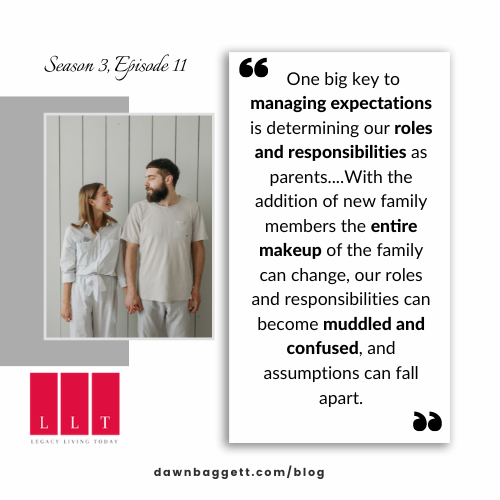
So as moms it’s important for us to come together with our husbands and discuss what roles we both feel comfortable taking on. This can help to clear up any confusion about who is responsible for what tasks when it comes to caring for our children. Having this discussion may also help us to identify areas where we have overlapping roles and responsibilities or might need additional support from one another. If you’re a single mom you still need to have a heart to heart with anyone else who’s a primary caregiver for your child or children. It can be necessary to clarify these for older children or extended family too.
Reassessing Expectations
It’s not a one & done conversation either. Do you regularly reassess your own expectations and those of others involved in your family dynamic? Is that something you (or they) would be be willing to do?
When dealing with changing family dynamics—whether due to divorce, adoption or remarriage— it’s important to monitor what reasonable expectations look like in light of the current circumstances. For example: It may not be reasonable for us to assume that our children will get along well, or that they will instantly accept their new siblings or parents into their lives; similarly, it may not be reasonable for us to assume that we should have all the answers about how best to parent them without seeking out additional support & resources. Even seemingly small matters can become overgrown points of conflict if not dealt with promptly.
Reasonable expectations should take into account all aspects of the situation at hand and should evolve as new information arises. Differences in personality, ages & stages can mean that expectations won’t be the same from child to child.
Self-Compassionate Parenting
Are you practicing self-compassion? Self-compassionate parenting techniques focus on treating yourself kindly instead of harshly after making an error or feeling overwhelmed by a situation involving your child(ren). We all make mistakes as parents; but engaging in self-criticism does little more than add stress on top of already difficult scenarios which can lead to burnout down the line if not addressed properly early on. This is different than self-reflection or realistic self-assessment. If you’re kind to others, consider whether you’re just as kind to yourself in your thoughts and self-talk. Kindness towards ourselves allows us to provide a positive example for our children. Not to be confused with selfishness or self-indulgence, maintaining a healthier perspective about challenging situations can help them feel more secure.
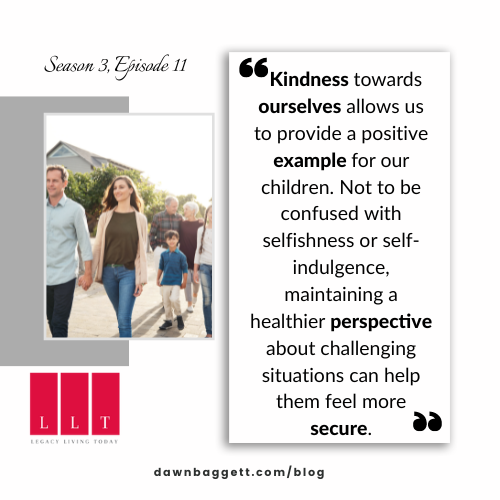
By discussing roles and responsibilities amongst the adults (and perhaps older teens) involved in your family system, reassessing expectations as circumstances change, and practicing self-compassionate parenting techniques, you can better manage the challenges associated with your changing family dynamics through all the stages of your family life cycle while providing your child(ren) with unconditional love and ongoing examples of working out the big and small issues of family life.
I appreciate if you would leave a comment or podcast review if this helps you.
And as always,
keep learning, keep growing & keep loving.
💜🩷♥️
Dawn
______________________________________________________

Post Adoption (Mom) Coach
“STANDING IN THE GAP FOR SECOND MOMS in Adoptive & Blended Families
As a Certified LifeMapping(R) Coach, Dawn helps Christian adoptive moms navigate the challenges of their non-traditional families with their own brand of (faith fueled) success!
DISCLAIMER: I’m a coach, not a doctor nor a therapist. As a coach I do not offer mental or medical health diagnosis, treatment or cures. Furthermore, I am no longer a practicing attorney and do not offer individual legal advice. For individual advice related to your own personal situation I recommend you seek out an appropriate professional. Coaching may fill a spot in your overall support network.
—
Copyright © 2025 Dawn T. Baggett, JD - All rights reserved
—
